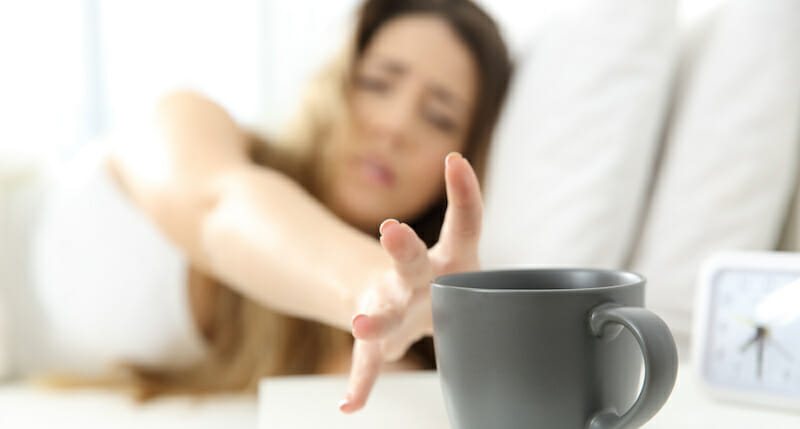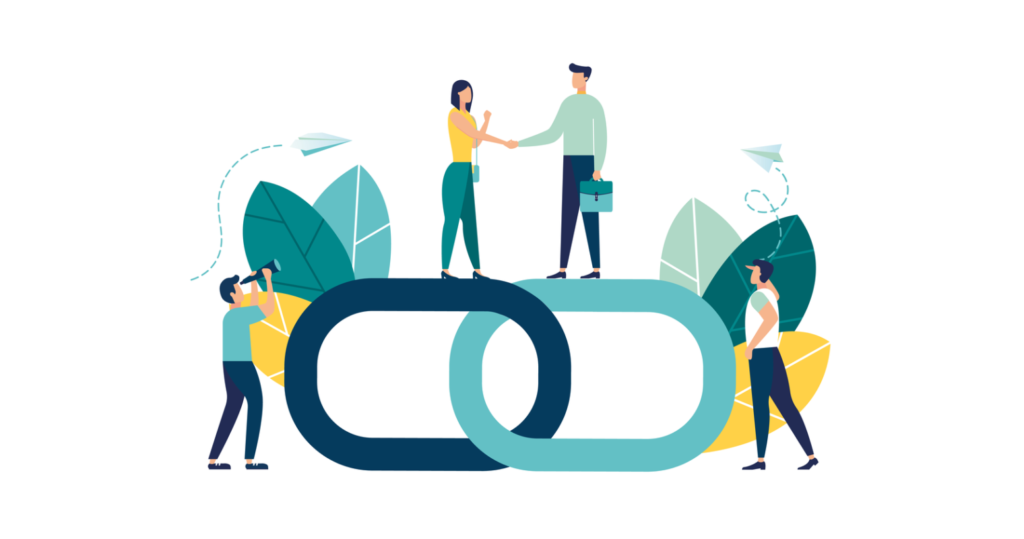Caffeine is a popular stimulant that can affect mental health in different ways. It might give you a quick energy boost. But too much can cause anxiety, jitteriness, and trouble sleeping. For many, cutting down or stopping caffeine is key to better mental health.
Studies have found that stopping caffeine can help with anxiety and improve sleep. Knowing how caffeine impacts mental health helps people make better choices about what they drink.
Key Takeaways
- Caffeine can negatively impact mental health if consumed excessively.
- Quitting caffeine can lead to reduced anxiety and improved sleep.
- Understanding caffeine’s effects is crucial for mental wellbeing.
- Reducing caffeine intake can be a step towards better mental health.
- Making informed decisions about caffeine consumption is key.
The Relationship Between Caffeine and Mental Health
Caffeine is a stimulant many people use to feel more awake. But too much can harm our mental health. It can make us feel less well than before.
How Caffeine Affects Your Brain Chemistry
Caffeine changes how our brain works by affecting chemicals like dopamine and serotonin. These chemicals help us feel good and have energy. Too much caffeine can upset this balance, causing more stress and anxiety. It can make our brain work too hard, leading to feelings of anxiety.
- Caffeine can raise stress hormones like cortisol.
- It changes how our brain rewards us, affecting dopamine levels.
- It can make us dependent, similar to caffeine addiction.
The Connection Between Caffeine and Anxiety
There’s a clear link between caffeine and anxiety. Too much caffeine can make us feel jittery and uneasy. Lowering or stopping caffeine is often advised for those with anxiety.
- Too much caffeine can cause anxiety attacks in some.
- It can mess with our sleep, adding to anxiety.
- Some people get caffeine-induced anxiety, which goes away when they cut back on caffeine.
Caffeine’s Impact on Sleep Quality
Caffeine affects our sleep, which is key for our mental health. Drinking it in the afternoon or evening can make it hard to sleep well. Poor sleep is linked to depression and anxiety.
- Caffeine can delay when we fall asleep and shorten our sleep time.
- It can also mess with our sleep patterns.
- Good sleep habits, like less caffeine, can help our mental health.
It’s important to understand how caffeine affects our mental health. Knowing how it changes our brain, causes anxiety, and affects sleep helps us manage it better. This can improve our mental health and reduce caffeine withdrawal symptoms if we decide to cut down or stop.
Signs You May Have a Caffeine Addiction
Knowing the signs of caffeine addiction is the first step to better mental health. Caffeine, a common stimulant, can become addictive if not watched. Drinking more than 400mg of caffeine daily, or about three to four cups of coffee, can cause problems. These include muscle tremors, nausea, and headaches.
Physical Dependency Symptoms
Physical dependency on caffeine shows in different ways. Common signs include:
- Headaches: A big withdrawal symptom when you stop or cut down on caffeine.
- Fatigue: Feeling very tired or sluggish without caffeine.
- Muscle Tremors: Shaky hands or other muscle tremors from caffeine’s effect on the nervous system.
- Health experts say, “Caffeine is a drug that can lead to physical dependence and withdrawal symptoms.” Knowing these physical signs is key to spotting a caffeine addiction.
Psychological Dependency Markers
Psychological dependency on caffeine is as important as physical dependency. Signs include:
- Anxiety and Jitters: Feeling jittery or anxious after drinking caffeine.
- Inability to Concentrate: Needing caffeine to stay alert and focused.
- Emotional Dependence: Relying on caffeine to feel normal or to handle stress.
A study found that “psychological dependence on caffeine can be as bad as physical dependence, affecting daily life and mental health.”
When Daily Consumption Becomes Problematic
Daily caffeine use becomes a problem when it interferes with your life. Signs include:
- Neglecting Responsibilities: Drinking caffeine instead of doing work, school, or personal tasks.
- Continued Use Despite Negative Effects: Keeping drinking caffeine even though it’s bad for your health.
- Failed Attempts to Cut Down: Trying but failing to reduce or stop caffeine use.
Experts say, “the key to beating caffeine addiction is knowing when it’s a problem and making changes.”
Mental Health Benefits of Quitting Caffeine
Quitting caffeine can greatly improve mental health. It helps people live a more balanced and healthy life. This section looks at the mental health perks of stopping caffeine.
Reduced Anxiety and Stress Levels
One big plus of quitting caffeine is less anxiety and stress. Caffeine can make anxiety worse. Without it, people often feel calmer and less jittery. Studies have shown that stopping caffeine can really cut down on anxiety.
Improved Sleep Quality and Mood Stability
Quitting caffeine also means better sleep. Caffeine can mess with sleep, but without it, sleep gets better. Better sleep helps keep moods stable, reducing mood swings and irritability.
Enhanced Natural Energy and Focus
It might seem odd, but quitting caffeine can boost natural energy and focus. Without caffeine’s ups and downs, energy stays steady all day. This natural energy boost can make life more productive and fulfilling.
Long-term Psychological Benefits
Stopping caffeine for good can also protect against mental health issues. Research suggests that long-term caffeine avoidance can make people more resilient against stress and anxiety.
What to Expect During Caffeine Withdrawal
Stopping caffeine can be tough. Knowing what to expect during withdrawal helps. Your body gets used to caffeine and misses it when it’s gone.
Common Withdrawal Symptoms
Quitting caffeine can bring on various symptoms. Here are some common ones:
- Headaches: Headaches can be mild or severe.
- Fatigue: Feeling very tired is common.
- Irritability: Mood swings and irritability can happen.
- Difficulty Concentrating: Without caffeine, focusing can be hard.
Timeline of Caffeine Detox
The time it takes to get over caffeine withdrawal varies. But, it usually follows a certain pattern:
- First 24 hours: Symptoms can start within 24 hours after the last caffeine intake.
- 2-3 days: Symptoms usually peak in 2-3 days.
- 4-9 days: Most people start to feel better in 4-9 days, but some symptoms may last longer.
Managing Withdrawal Symptoms Effectively
While caffeine withdrawal can be tough, there are ways to manage symptoms:
- Stay Hydrated: Drinking lots of water can help with headaches and fatigue.
- Rest: Getting enough sleep is key for recovery.
- Exercise: Light exercise can improve mood and energy.
- Nutritional Balance: Eating a balanced diet supports overall health.
By knowing what to expect and how to manage symptoms, you can make quitting caffeine easier. This helps improve your mental health.
Practical Steps for Quitting Caffeine
Starting your journey to a caffeine-free life means understanding how much you drink. It’s not just about wanting to quit; it’s about planning and strategy.
Gradual Reduction vs. Cold Turkey Approach
There are two main ways to stop drinking caffeine: gradual reduction and cold turkey. The gradual reduction method means slowly cutting down on caffeine. This helps your body adjust and can make withdrawal symptoms less severe. The cold turkey approach means stopping caffeine all at once. While some like this method, it can cause more severe withdrawal symptoms. This might make it harder for some to stay on track. Some of the ways people have tried to do this is with hypnosis, finding caffeine subsitutes, or changing up their daily habits.
Creating a Personalized Caffeine Reduction Plan
To quit caffeine well, you need a personalized reduction plan. First, track how much caffeine you drink for a week. Then, set a goal to gradually cut down.
- Find out where your caffeine comes from (coffee, tea, chocolate, etc.).
- Plan how to reduce your intake (like cutting back by half a cup every few days).
- Keep an eye on your progress and tweak your plan if needed.
Healthy Alternatives to Caffeinated Beverages
It’s important to find healthy drinks to replace caffeinated ones. Consider trying:
| Alternative | Benefits |
| Herbal Teas | Caffeine-free, full of antioxidants, helps you relax. |
| Chicory Root Coffee | No caffeine, tastes great, good for your stomach. |
| Infused Water | Drinks well, tastes good, has no calories. |
Building New Energy-Boosting Habits
Quitting caffeine doesn’t mean you’ll lose your energy. You can find new ways to stay energized, like:
- Doing regular exercise.
- Getting 7-9 hours of sleep each night.
- Eating a diet full of fruits, veggies, and whole grains.
By adding these habits to your day, you can keep your energy up without caffeine.
Real Stories: Mental Health Transformations After Quitting Caffeine
Many people have shared their stories of quitting caffeine and seeing big improvements in their mental health. They talk about feeling less anxious and sleeping better. These changes show how quitting caffeine can really help your mind and body.
The stories below show how quitting caffeine can improve your mental health. They are inspiring and can motivate others to try it too.
Anxiety and Panic Disorder Improvements
Caffeine often makes anxiety and panic disorders worse. But, quitting it can make these feelings much better. Sarah, for example, no longer has the panic attacks she used to have every day.
“I was skeptical at first, but within a few weeks of quitting caffeine, I felt a sense of calm I hadn’t experienced in years. My anxiety didn’t disappear, but it became manageable.” – Sarah
John also quit caffeine and saw his panic disorder symptoms lessen. He said it helped him feel less jittery and nervous.
Depression and Mood Disorder Changes
Quitting caffeine can also help with depression and mood disorders. Emily, who had depression, noticed her mood became more stable after quitting caffeine. She felt more balanced and less moody.
Michael also noticed his mental health improve after quitting caffeine. He had fewer depressive episodes and felt more energetic during the day.
Sleep Quality and Insomnia Recoveries
Quitting caffeine can also improve sleep. Rachel, who had insomnia, started sleeping through the night after quitting caffeine. She felt more refreshed and awake during the day.
- Improved sleep quality
- Reduced sleep latency
- Increased energy levels during the day
David also quit caffeine and noticed his sleep improved. He started sleeping better and feeling more rested.
These stories show the benefits of quitting caffeine for mental health. They talk about feeling less anxious, having better moods, and sleeping better. While everyone’s experience is different, the common theme is the positive change that happens when you stop drinking caffeine.
Conclusion: Embracing a Caffeine-Free Lifestyle for Better Mental Wellbeing
Quitting caffeine can greatly improve your mental health and overall wellbeing. It helps you understand how caffeine affects your mind. This knowledge lets you make better choices about what you drink.
Studies show that giving up caffeine can reduce anxiety and improve sleep. Starting a caffeine-free life can boost your natural energy and focus. This leads to a better life overall.
Choosing to live without caffeine is a personal journey. You might start by slowly cutting back or stop cold turkey. Finding healthy drinks to replace caffeinated ones is key. This way, you can manage your mental health and enjoy the perks of a caffeine-free life.
FAQ
What are the common symptoms of caffeine withdrawal?
Symptoms of caffeine withdrawal include headaches and fatigue. You might also feel irritable and have trouble concentrating. These symptoms can be different for everyone.
How long does caffeine withdrawal last?
Caffeine withdrawal usually lasts 2-9 days. The first 2-3 days are the toughest. How long it lasts depends on how much caffeine you used and your health.
Can quitting caffeine improve anxiety and stress levels?
Yes, quitting caffeine can help reduce anxiety and stress. Caffeine can make you feel more stressed by activating your brain’s stress response. Stopping it can help you feel better.
What are some healthy alternatives to caffeinated beverages?
Good alternatives to caffeinated drinks are herbal teas like peppermint or chamomile. You can also try infused water. These options are refreshing without the caffeine’s downsides.
How can I manage caffeine withdrawal symptoms effectively?
To handle caffeine withdrawal symptoms well, drink plenty of water and get enough sleep. Try relaxing activities like meditation or yoga. If you have headaches, over-the-counter pain relievers can help.
Is it possible to quit caffeine cold turkey?
Quitting caffeine cold turkey is possible, but it’s not always the best idea. Cutting down on caffeine slowly can make the process easier and reduce symptoms.
Can quitting caffeine improve sleep quality?
Yes, quitting caffeine can improve your sleep. Caffeine can mess with your sleep cycle. Stopping it can help you sleep better.
What are the long-term psychological benefits of quitting caffeine?
Quitting caffeine can lead to better mood stability and less anxiety and stress. It can also improve your natural energy and focus. It helps you live a healthier, more balanced life.
How can I create a personalized caffeine reduction plan?
To make a caffeine reduction plan, first track how much caffeine you drink and what triggers you. Then, slowly cut down your caffeine intake over time. Replace caffeinated drinks with healthier options.






